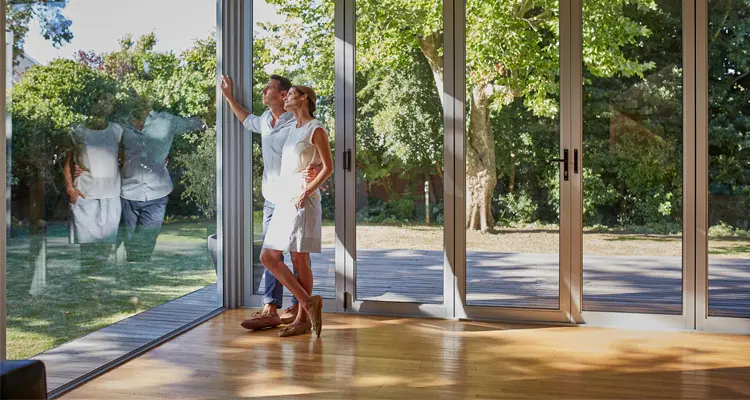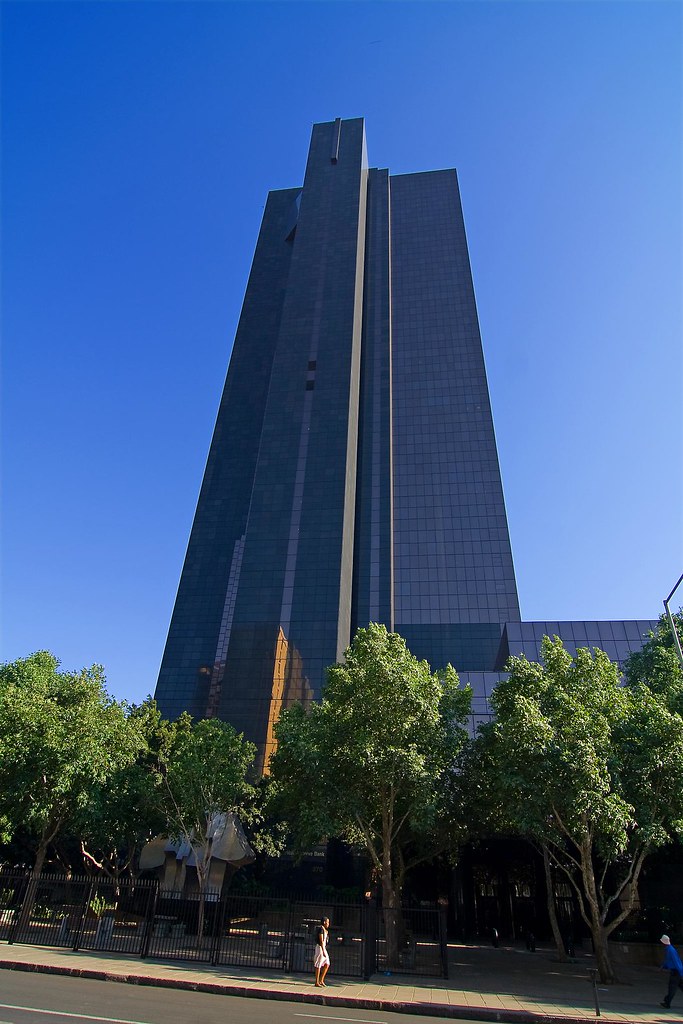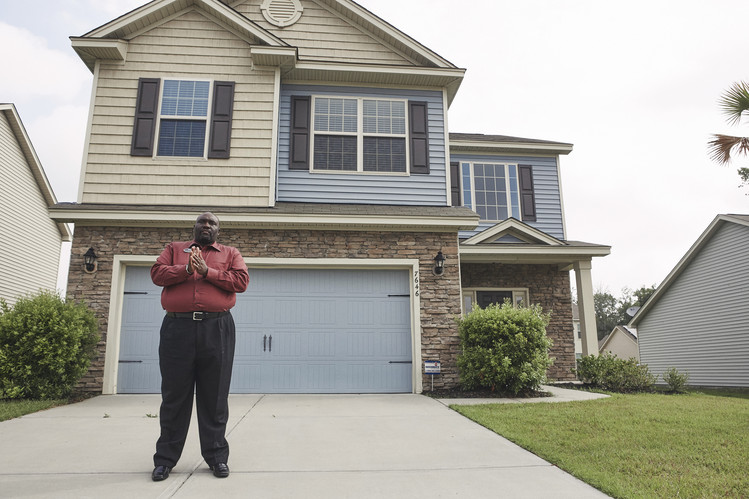How To Take Advantage Of Mortgage Options For Americans In South Africa
South Africa's property market presents a unique and attractive opportunity for Americans looking to invest abroad. With its diverse landscapes, from bustling cities to serene coastal towns and wildlife-rich savannas, the country offers a variety of real estate options that cater to different preferences and lifestyles. The appeal of South African real estate lies not only in its beauty and diversity but also in the relatively affordable prices when compared to the US housing market. Let's discover all mortgage options for Americans in South Africa.
Americans looking to invest in South Africa should consider several factors before diving into the property market. The economic stability, property laws, and the potential for rental income or capital appreciation are crucial considerations. Additionally, understanding the local culture, market trends, and the legalities of property ownership as a foreigner will help in making an informed decision.
For those unfamiliar with the process, obtaining a mortgage in South Africa as a foreigner can seem daunting. However, with the right information and guidance, it can be a straightforward process. The mortgage system in South Africa is well-established, with several options available to suit different investment strategies and financial situations.
In essence, the mortgage process for foreigners involves obtaining approval from the South African Reserve Bank, finding a suitable property, and securing a loan from a South African financial institution. While the process shares similarities with that in the United States, there are specific requirements and regulations that Americans must adhere to when applying for a mortgage in South Africa.
Exploring the categories of mortgages, the legal and financial prerequisites, the application procedures, and supplementary factors and expenses linked to acquiring property in South Africa as an American will be the focus of the upcoming segments. Whether you seek a vacation home, a permanent residence, or an investment property, gaining insights into the intricacies of the South African mortgage market will empower you to navigate your choices effectively. For further exploration into the fascinating science behind architecture, you can visit the Electronic Library For Minnesota.
Types Of Mortgages Available In South Africa
When Americans look to purchase property in South Africa, they are met with a variety of mortgage options. Understanding the types of mortgages available can help in making an informed decision that aligns with financial goals and circumstances. Here's a breakdown of the common mortgage typesyou'll encounter in South Africa.
Fixed-rate Mortgages And Their Benefits
Fixed-rate mortgagesare a popular choice for many property buyers, including Americans in South Africa. With this type of mortgage, the interest rate is set for a specific period, usually ranging from one to five years, although it can be longer. The main advantage of a fixed-rate mortgage is the predictability it offers. Your monthly repayments remain the same throughout the fixed-rate period, making it easier to budget and plan for the future.
Here are some benefits of choosing a fixed-rate mortgage:
- Stability: Your monthly payment won't change, even if the South African Reserve Bank adjusts interest rates.
- Budgeting: Easier to manage your finances without worrying about fluctuating repayments.
- Protection: Shields you from potential increases in interest rates for the duration of the fixed term.
However, it's worth noting that fixed-rate mortgages might come with higher interest rates compared to variable rate options, as you're paying for the security and stability they provide.
Variable Rate Mortgages And How They Work
On the other hand, variable rate mortgages have interest rates that can change over time. These rates are typically tied to the prime lending rate, which is influenced by the South African Reserve Bank's repo rate. When the repo rate changes, your mortgage interest rate, and consequently your monthly repayments, will adjust accordingly.
The variable rate mortgage offers flexibility and the potential for lower interest rates when the market rates decrease. Here are some points to consider:
- Flexibility: You can benefit from decreasing interest rates without needing to refinance.
- Potential Savings: If interest rates drop, you pay less interest on your mortgage.
- Extra Payments: Often, you can make additional payments without penalty, which can reduce the total interest paid over the life of the loan.
However, this type of mortgage also introduces uncertainty, as your payments can increase if the interest rates go up. This can make budgeting more challenging and requires a level of financial stability to manage potential increases in repayments.
Specialised Mortgage Products For Expats And Non-residents
For Americans who are non-residents or expatriates in South Africa, there are specialised mortgage productsdesigned to cater to their unique needs. These mortgage options consider the complexities of lending to individuals who may not have a long financial history in the country.
Specialised mortgage products for expats and non-residents often feature:
- Tailored Solutions: Lenders may offer mortgages that take into account your foreign income and credit history.
- Higher Loan-to-Value Ratios: Some banks may be willing to lend a higher percentage of the property's value to foreign nationals.
- Assistance with Documentation: Banks may provide guidance on the necessary paperwork and processes involved in securing a mortgage as a non-resident.
It's important to note that these specialised products may come with certain restrictions and could require a higher down payment or have higher interest rates compared to standard mortgage products available to South African residents.
Legal And Financial Requirements For Obtaining A Mortgage
When Americans consider purchasing property in South Africa, understanding the legal and financial requirements is crucial. The process can be quite different from what one might be accustomed to in the United States. Here, we will delve into the eligibility criteria, necessary documentation, credit checks, and the role of the South African Reserve Bank in the mortgage process for Americans in South Africa.
Eligibility Criteria For Americans In South Africa
To be eligible for a mortgage in South Africa, Americans must meet certain criteria set by the lending institutions. These criteria often include:
- Age: Applicants must typically be over the age of 18.
- Income: Proof of a stable income that can support the mortgage repayments.
- Employment Status: A steady job or a reliable source of income is essential. Self-employed individuals will need to provide additional documentation.
- Residency Status: While non-residents can obtain mortgages, the conditions may differ from those for residents.
- Investment Limits: The South African Reserve Bank may impose restrictions on the amount foreigners can borrow.
Necessary Documentation And Credit Checks
The documentation required for a mortgage application in South Africa is comprehensive and includes:
- Identification: A valid passport and, if applicable, a visa or residency permit.
- Proof of Income: Recent payslips, tax returns, and bank statements.
- Credit History: South African banks may request a credit report from an international credit bureau.
- Property Details: A sales agreement or a property description if the property is yet to be built.
- Bank Statements: Typically, the last three months' bank statements are required to assess financial stability.
Credit checks are a standard part of the mortgage application process. South African lenders will assess an American applicant's creditworthiness based on their financial history. This includes looking at outstanding debts, payment history, and overall credit score. It's important to note that a good credit history will significantly enhance the chances of mortgage approval and may result in more favourable loan terms.
Understanding The South African Reserve Bank's Role
The South African Reserve Bank(SARB) plays a pivotal role in regulating the financial system, including mortgages for non-residents. The SARB sets guidelines for the amount of financing that can be provided to foreign nationals. For Americans, this typically means that they can finance up to a certain percentage of the property value, and the rest must be covered by a down payment.
The SARB also controls the flow of foreign funds and has strict regulations in place for money laundering prevention. Americans looking to purchase property in South Africa must ensure that their funds are transferred legally and comply with the SARB's exchange control regulations.
The Mortgage Application Process
Navigating the mortgage application process in South Africa can be a complex journey for Americans. Understanding the steps involved and deciding whether to approach banks directly or engage the services of a mortgage broker are crucial decisions that can impact the success and ease of securing a mortgage.
Deciding Between Banks And Mortgage Brokers
When it comes to applying for a mortgage, Americans have the option to either approach banks directly or work with a mortgage broker. Banks are the traditional route and involve dealing with financial institutions directly. This can be beneficial for those who have a strong relationship with a particular bank or who prefer to manage the process themselves.
On the other hand, mortgage brokers act as intermediaries between the borrower and the banks. They have a broad understanding of the mortgage products available and can offer advice on the best options tailored to individual circumstances. Brokers can save time and effort as they handle the negotiations and paperwork on behalf of the borrower. However, it's important to note that brokers may charge a fee for their services, which should be factored into the overall cost.
Steps Involved In Applying For A Mortgage
The application process for a mortgage in South Africa typically involves several key steps:
- Pre-qualification: This initial step provides an estimate of the mortgage amount one might qualify for, based on financial information provided to the bank or broker.
- Application submission: The borrower must complete and submit a mortgage application form, along with the necessary supporting documents.
- Credit checks: The bank or lender will conduct a credit check to assess the borrower's creditworthiness and repayment capacity.
- Property valuation: The bank will arrange for a professional valuation of the property to ensure it offers adequate security for the loan.
- Approval in principle: If the initial checks are satisfactory, the bank will issue an approval in principle, which is a conditional approval of the mortgage.
- Final approval: Once all conditions are met, including a satisfactory property valuation and any additional checks, the bank will issue a final approval for the mortgage.
- Loan offer: The borrower will receive a formal loan offer, which includes the terms and conditions of the mortgage.
- Acceptance: If the borrower is happy with the offer, they will sign and return the acceptance to the bank.
- Legal process: Conveyancing attorneys will handle the legal process, including the registration of the mortgage bond.
- Disbursement: Upon completion of the legal process, the loan amount will be disbursed, and the purchase transaction can be finalised.
Estimating Costs With Online Mortgage Calculators
One of the most useful tools for Americans considering a mortgage in South Africa is an online mortgage calculator. These calculators can help estimate monthly repayments, interest rates, and other costs associated with a mortgage. By inputting various scenarios, borrowers can get a clearer picture of what they can afford and how different mortgage products will impact their finances.
It's important to remember that while online calculators provide a good estimate, the actual costs may vary. Additional fees, such as initiation fees, service fees, and credit life insurance, may not always be included in the calculator's estimate. Therefore, it's advisable to use these tools as a guide and consult with a bank or broker for a more accurate assessment.
Additional Considerations And Costs
When venturing into the South African property market, Americans must be aware of several additional considerations and costs that come with purchasing a home. These can significantly impact the overall affordability and feasibility of the investment.
Down Payment Expectations For Foreign Buyers
Foreign buyers, including Americans, often face higher down payment requirements when purchasing property in South Africa. This is a risk mitigation strategy for lenders, as non-residents may be perceived as higher risk. Typically, you might be expected to put down anywhere from 30% to 50%of the property's purchase price as a down payment. This is considerably higher than what might be expected in the United States, where down payments can be as low as 3.5% with certain loan types.
Transfer Duties, Legal Fees, And Other Associated Costs
Beyond the mortgage and down payment, there are additional costs that buyers must budget for:
- Transfer Duty: This is a government tax levied on property purchases. The rate is based on a sliding scale depending on the value of the property. For example, properties under ZAR 1,000,000 are exempt, but the duty rises incrementally with the property value.
- Conveyancing Attorney Fees: These are the legal fees paid to the attorney who transfers the property into your name. They are based on a tariff recommended by the Law Society of South Africa and vary with the property's value.
- Bond Registration Costs: If you're taking out a mortgage, there will be legal costs associated with registering the bond. These are separate from the conveyancing fees and are also based on a recommended tariff.
- Bank Initiation Fee: Charged by the bank when initiating a new mortgage, this is a once-off fee.
- Property Valuation Fee: Before granting a mortgage, banks will require a professional valuation of the property, which may incur a fee.
- Homeowners Association (HOA) Fees: If the property is in a community with an HOA, there will be monthly or annual fees.
- Utility Connection Fees: When moving into a new property, there may be fees for connecting water, electricity, and other utilities.
It's crucial to factor in these costs early on to avoid any surprises during the purchasing process.
Mortgage Options For Americans In South Africa - FAQs
Can Americans Get A Mortgage In South Africa?
Americans can typically obtain a mortgage in South Africa, allowing them to purchase property in the country. However, the process and requirements may vary, and it's advisable for individuals to consult with local banks or financial institutions in South Africa for specific details and eligibility criteria.
Can A US Citizen Buy A House In South Africa?
U.S. citizens can buy a house in South Africa. However, there are legal and procedural aspects to consider, and it's recommended to work with local real estate professionals, legal experts, and financial institutions to ensure a smooth property acquisition process.
Can A Foreigner Apply For A Bond In South Africa?
Foreigners, including U.S. citizens, can apply for a bond (mortgage) in South Africa. The application process may involve meeting certain criteria and providing the necessary documentation, and the terms and conditions may vary among different lenders. Consulting with local financial institutions or mortgage providers will help individuals understand the specific requirements for foreigners applying for a bond in South Africa.
Conclusion
Securing home insuranceis another vital step in the property purchase process. In South Africa, it's not only prudent to have insurance to protect against theft, fire, and natural disasters, but it's also often a requirement by the lender before a mortgage is approved. The cost of insurance will vary based on the value of the property and the contents you wish to insure. It's advisable to shop around and compare different insurance providers to find a policy that suits your needs and budget.
When considering the purchase of property in South Africa, it's essential to have a comprehensive understanding of all the costs involved, not just the price of the property itself. By being well-informed and prepared for these additional expenses, Americans can navigate the South African mortgage landscape more effectively and make sound investment decisions. Remember to consult with financial advisors and legal experts to ensure that all financial and legal obligations are met, paving the way for a successful property acquisition in South Africa.




